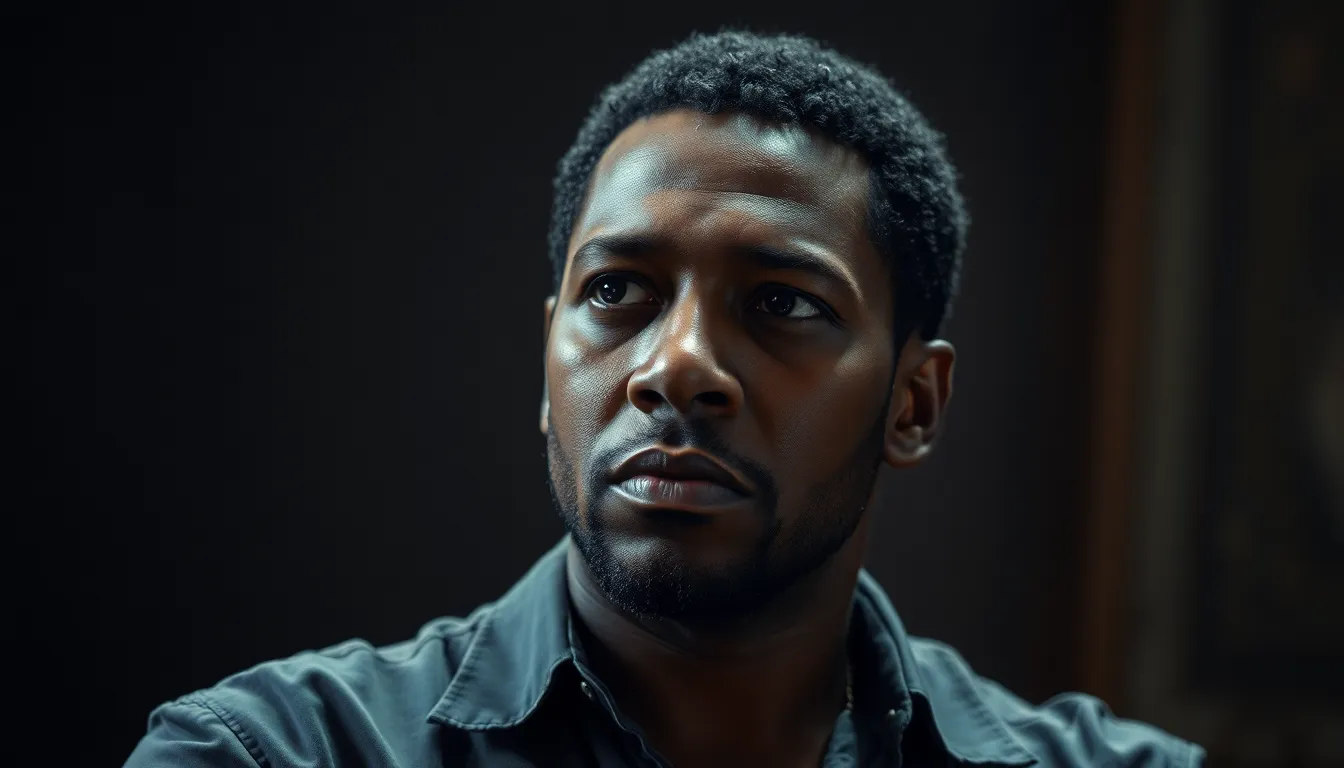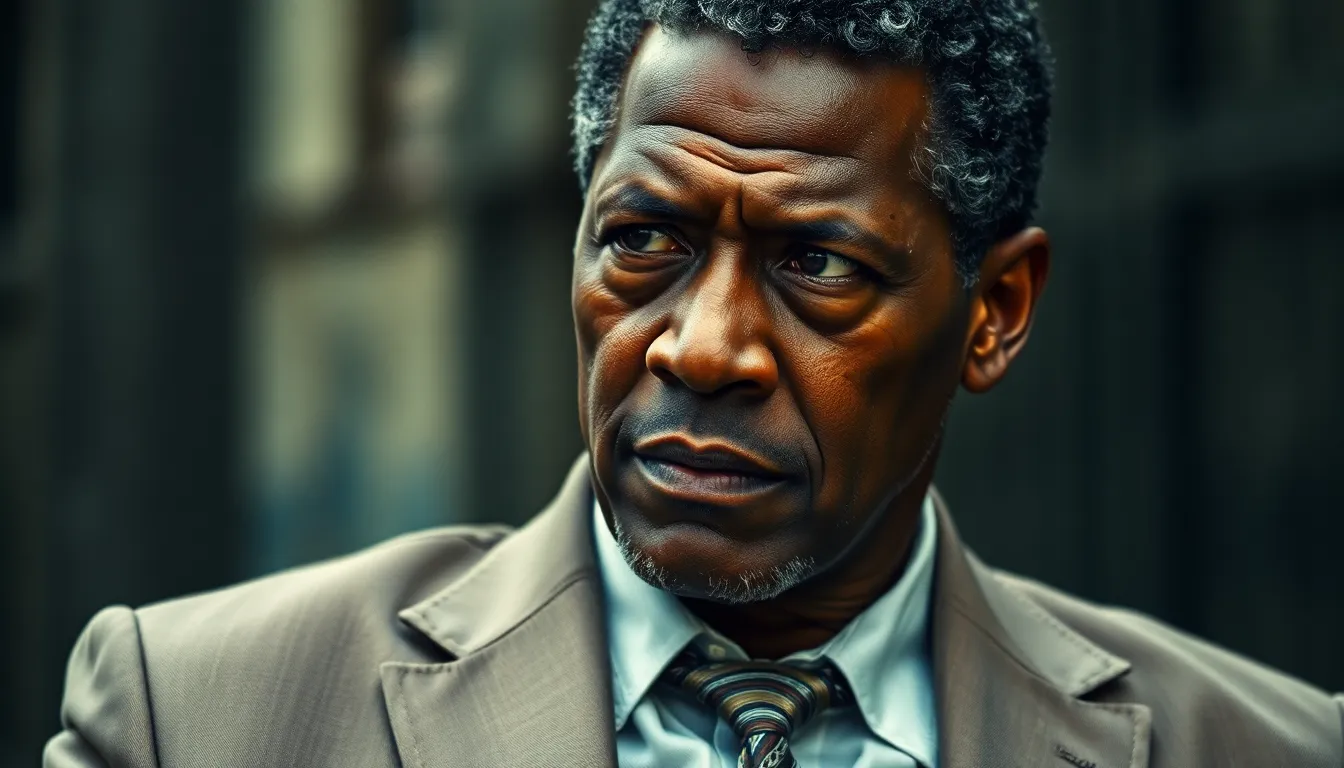When it comes to Hollywood legends, few shine as brightly as Denzel Washington. Known for his powerful performances and magnetic presence, he’s not just an actor—he’s a cultural icon. But what if we told you that Denzel has a unique take on divinity? That’s right! The idea of a “Denzel Washington picture of God” has sparked conversations that blend humor with profound insight, making us ponder the divine in a way we never expected.
Table of Contents
ToggleOverview of Denzel Washington’s Work
Denzel Washington stands as a prolific actor and director in Hollywood. His filmography includes critical and commercial hits that span various genres. Notable films such as Training Day and Fences showcase his exceptional range and depth. Washington’s performances often earn accolades, including two Academy Awards and three Golden Globe Awards.
In addition to acting, he directs films that reflect his vision and artistic style. Projects like Antwone Fisher and The Great Debaters highlight his commitment to storytelling and character development. Collaborations with writers such as August Wilson reveal Washington’s dedication to the craft and cultural narratives.
Critics frequently praise his ability to portray complex characters, navigating themes of struggle and redemption. He consistently brings authenticity to roles, solidifying his status as one of the greats in cinema. Washington’s influence extends beyond the screen; he serves as a role model for aspiring actors and filmmakers.
Recognition for his talent continues, as he remains a staple in contemporary cinema. Industry professionals and audiences alike admire his contributions and the impact of his work. Denzel Washington’s legacy reflects not only a career marked by success but also a powerful influence on the portrayal of African American stories in film.
The Significance of “Picture of God”

The concept of “Picture of God” associated with Denzel Washington resonates deeply in cultural discussions about divinity and representation. This intriguing phrase invites contemplation on how society perceives God and the divine attributes within human figures.
Plot Summary
The narrative unfolds through a multi-layered exploration of characters facing personal conflicts. Denzel Washington’s character often serves as a moral compass, illustrating struggles against injustice and inner demons. In pivotal scenes, his portrayals evoke empathy, driving audiences to reflect on their beliefs. Results indicate that audiences find inspiration in his journey, recognizing the search for meaning within themselves. Through these plot developments, Washington’s roles contribute significantly to the discourse on spirituality and human experience.
Themes and Messages
Prominent themes include redemption, hope, and the human condition. Each character’s journey emphasizes the importance of resilience and faith. Washington’s portrayal often illustrates the idea that divinity exists within everyone, challenging traditional perceptions of God. Messages of love and understanding permeate the narrative, encouraging viewers to embrace their own interpretations of spiritual connections. Critics note that such themes encourage critical discussions on faith, making Washington’s roles profoundly impactful.
Denzel Washington’s Performance
Denzel Washington’s acting delivers depth and authenticity. His characters often reflect the complexities of the human experience. Notable roles showcase a range of emotions and personal journeys. For instance, in Training Day, Washington embodies the morally ambiguous Alonzo Harris, drawing audiences into a world of corruption and power. Each performance invites viewers to grapple with moral dilemmas. His commitment to character authenticity resonates with many, making his portrayals both relatable and compelling.
Character Analysis
Washington’s characters frequently serve as mirrors of societal issues. His role in Fences highlights family dynamics and racial tensions, revealing deep emotional struggles. Each character possesses unique motivations that intertwine with the broader themes of the narratives. In The Hurricane, he portrays Rubin Carter, an innocent man wrongfully imprisoned, evoking empathy from audiences. Complexities such as redemption and resilience emerge through his performances. This ability to present layered individuals enriches the storytelling experience, prompting reflections on justice and humanity.
Direction and Cinematic Style
Washington’s directorial approach emphasizes authenticity and emotional depth. His films often focus on character-driven narratives that resonate with viewers. In Antwone Fisher, he combines personal struggles with themes of forgiveness and healing, creating a powerful viewing experience. Cinematic choices reflect an understanding of pacing and visual storytelling. Bold decisions in framing and lighting enhance the emotional weight of scenes. Washington’s commitment to thoughtful direction elevates his projects, ensuring they provoke meaningful conversations among audiences.
Critical Reception
Critics have widely acknowledged Denzel Washington’s exceptional talent and depth in his performances. The portrayal of intricate characters in films like Training Day and Fences highlights his ability to evoke strong emotional responses. Reviews consistently emphasize his skill in navigating themes of redemption and struggle.
Audiences resonate with Washington’s characters, often reflecting their own moral dilemmas. Such authenticity attracts critical approval and garners multiple awards. For instance, his work in Fences earned him significant acclaim, showcasing powerful family dynamics and social issues.
Moreover, his directorial projects have drawn praise for exploring complex narratives. In Antwone Fisher, Washington highlighted personal journeys that balance moments of struggle with themes of hope and forgiveness. Critics appreciate how these elements encourage viewer engagement and reflections on societal concerns.
The notion of a “Denzel Washington picture of God” sparks conversations about divinity and human complexity. Observers note how his roles challenge conventional perceptions of spirituality. By embodying morally ambiguous characters, Washington invites audiences to examine their beliefs.
Recognition of his contributions extends beyond acting. The impact of his work on diverse storytelling is profound, influencing how filmmakers approach narratives involving African American experiences. Fellow actors and filmmakers frequently celebrate his legacy, reinforcing his status as a cultural icon.
Washington’s ability to portray moral complexity contributes to a rich dialogue on faith, justice, and humanity. Such discussions highlight how art can reflect deeper philosophical questions, reflecting the complexity of the human condition. Each performance serves as a reminder of the ability of film to inspire personal and societal reflection.
Denzel Washington’s impact on cinema transcends mere entertainment. His performances challenge audiences to confront their beliefs about morality and divinity. The concept of a “Denzel Washington picture of God” embodies the complexity of human nature and the struggles that define the human experience.
Through his roles, Washington not only captivates viewers but also inspires deeper conversations about faith and redemption. His legacy continues to influence filmmakers and audiences alike, encouraging a richer understanding of African American narratives. As discussions around his work evolve, they reveal the profound connection between art and the exploration of the divine.





